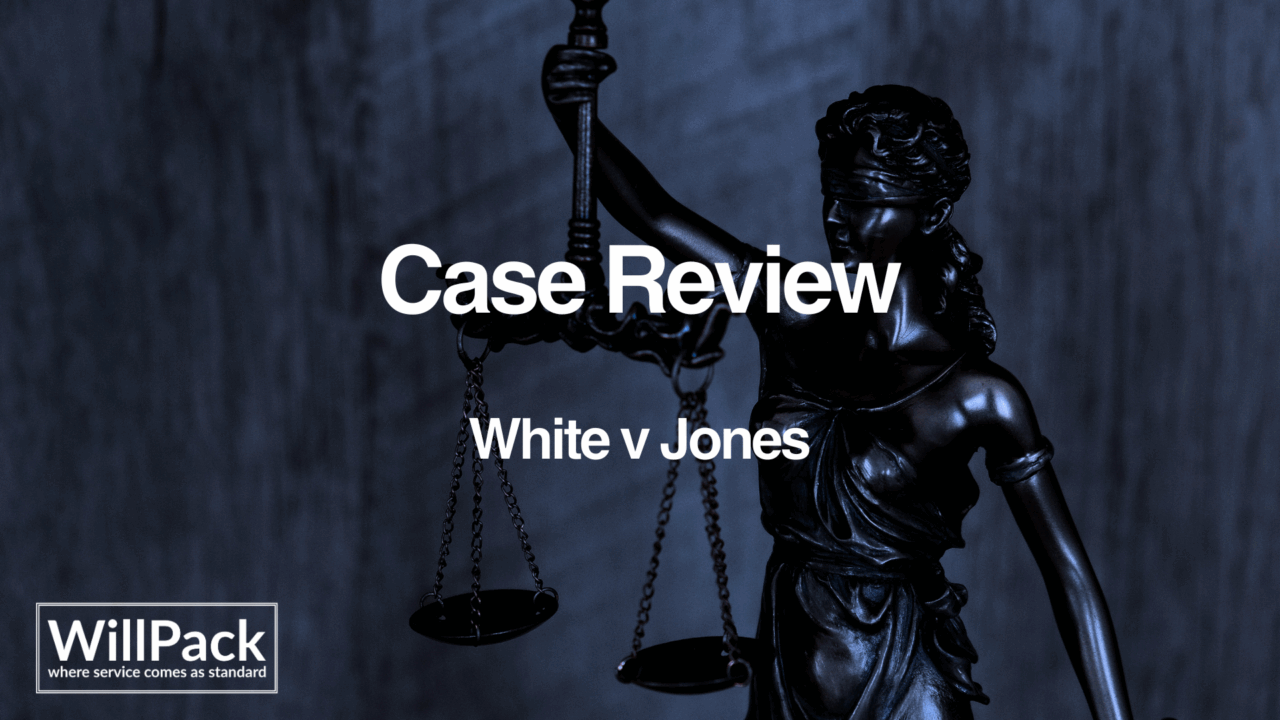This article provides an overview of the facts and decision in White v Jones [1995] 2 AC 207, a landmark case which established that a solicitor may owe a duty of care in negligence to intended beneficiaries of a will. The case is a cornerstone authority on professional negligence in the context of wills and estate planning.
Background
Traditionally, a professional will drafter’s duty of care was owed only to their client, not to third parties. However, this could leave intended beneficiaries without a remedy if a drafter’s negligence prevented them from inheriting as the testator intended.
White v Jones – Facts
Mr Barratt, the testator, had a disagreement with his two daughters and instructed his solicitor, Mr Jones, to remove them from his will. The family later reconciled, and Mr Barratt instructed Mr Jones to prepare a new will reinstating the daughters and leaving each of them £9,000. Mr Jones failed to act on these instructions promptly, and Mr Barratt died 40 days later before the new will was executed. As a result, the daughters did not receive the intended legacies.
The daughters brought a claim in negligence against Mr Jones, seeking to recover the sums they would have received under the new will. The key issue was whether Mr Jones owed a duty of care to the daughters, who were not his clients.
White v Jones – Decision
The House of Lords held that the solicitor, through negligence, failed to implement Mr Barratt’s instructions and owed a duty of care the beneficiaries. The key points from the decision were that:
- The loss to the intended beneficiaries was a foreseeable consequence of the solicitor’s negligence.
- There was sufficient proximity between the solicitor and the intended beneficiaries.
- It was fair, just and reasonable to impose a duty of care, as the beneficiaries had no other means of redress and the solicitor was in a position to prevent the loss.
- The duty of care arises even though the beneficiaries were not party to the contract between the testator and the solicitor.
The House of Lords therefore allowed the daughters’ claim, and they were entitled to recover the sums they would have received under the new will.
Conclusion
White v Jones is a leading authority on the liability of professionals to third parties, particularly in the context of wills and estate planning. The case established that professional will writers may owe a duty of care to intended beneficiaries even in the absence of a contractual relationship. The decision has been applied in subsequent cases involving other professionals and third parties, and remains a key authority in this area.
It also serves as a reminder of the importance of prompt and accurate execution of a testator’s instructions. Practitioners must be aware that delays could lead to claims of negligence, and the case highlights the need to carefully manage will instructions to avoid professional negligence claims.
If you have subscribed to our Quiz Membership 2025, please find this article’s quiz here. You must be signed into the partner area of our website to access this.

